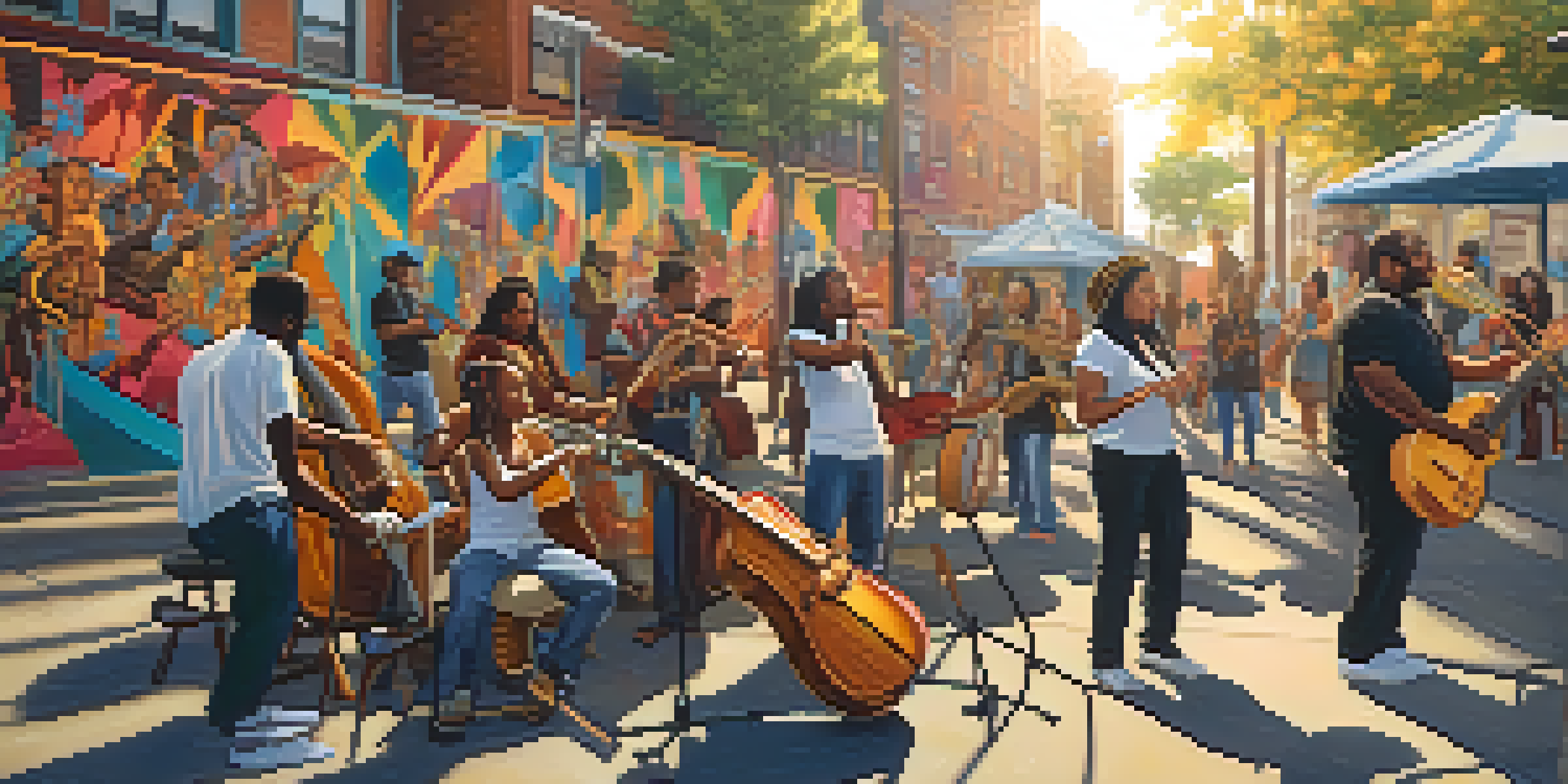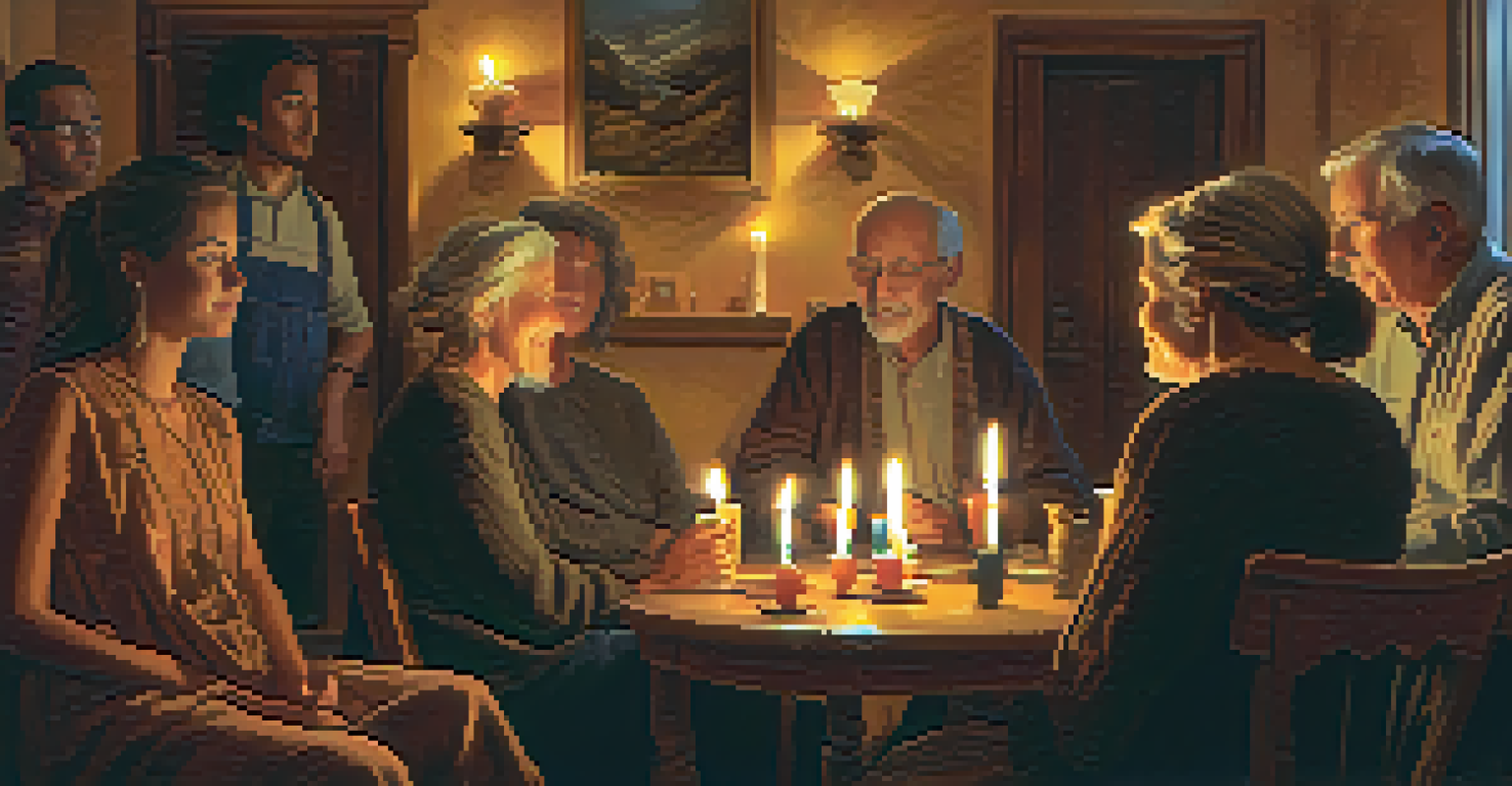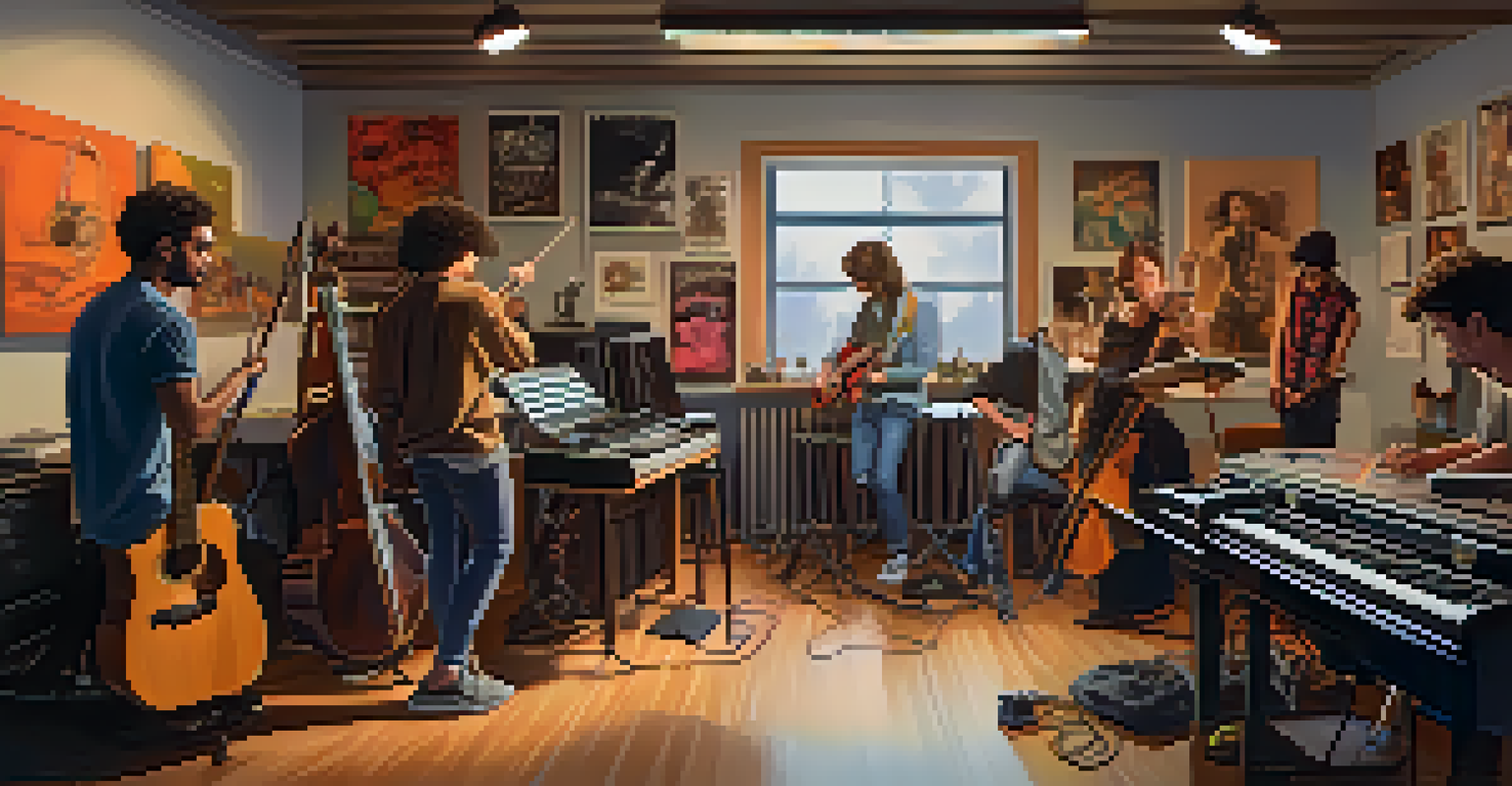Music as a Symbol of Resistance in Conflict Zones

The Role of Music in Times of Conflict
Music has long been a vital part of human expression, especially in times of conflict. It serves as a powerful medium to convey emotions and sentiments that words alone often cannot express. In conflict zones, music becomes not just a form of entertainment but a lifeline that connects individuals and communities facing adversity.
Music can change the world because it can change people.
During wars and conflicts, songs often emerge that reflect the struggles, hopes, and resilience of those affected. These pieces can serve as both a form of protest and a way to preserve cultural identity. For instance, many traditional folk songs have been adapted to address contemporary issues faced by communities in turmoil.
Moreover, music creates a shared space for healing and unity. It provides an outlet for people to come together, share their experiences, and find solace in collective creativity, all of which are crucial in maintaining morale during difficult times.
Musical Genres as Tools of Resistance
Different musical genres have emerged as symbols of resistance in various conflict zones around the world. For example, rap music in the United States has been used to address systemic injustices, while reggae music has voiced the struggles of the oppressed in Jamaica. Each genre carries its unique narrative and style, resonating deeply with the communities it represents.

In the Middle East, artists have blended traditional sounds with modern influences to create a powerful form of resistance music. This fusion not only preserves cultural heritage but also addresses contemporary issues such as war, oppression, and displacement. Through their lyrics, these artists challenge the status quo and call for social justice.
Music Unites in Times of Conflict
In conflict zones, music becomes a vital lifeline, fostering connection and resilience among individuals and communities.
These genres often serve as a rallying cry for those who feel marginalized or unheard. By expressing their frustrations through music, artists can inspire listeners to take action, fostering a sense of empowerment and collective identity.
Music as a Means of Cultural Preservation
In conflict zones, music plays a crucial role in preserving cultural identity. Traditional songs and instruments often reflect the history and values of a community, making them invaluable during times of upheaval. As conflicts threaten to erase cultural heritage, music provides a way for people to hold onto their roots.
Where words fail, music speaks.
For instance, in regions where displacement is common, musicians often adapt traditional melodies to address their current realities. This process not only keeps cultural practices alive but also allows for the evolution of these traditions, blending the old with the new. Through this adaptation, communities can find strength in their heritage.
Furthermore, music festivals and gatherings that celebrate these traditions become essential for community bonding. They serve as a reminder of resilience and continuity, reinforcing the idea that culture can survive, even thrive, despite ongoing challenges.
The Impact of Music on Mental Health
Music has profound effects on mental health, especially in areas affected by conflict. It can provide a sense of normalcy and comfort to individuals grappling with trauma and loss. Listening to or creating music allows people to express their feelings and cope with the unimaginable challenges they face.
Studies have shown that engaging with music can help reduce anxiety and depression, making it a vital tool for emotional healing. In many conflict zones, community music initiatives have emerged, providing safe spaces for individuals to come together and share their experiences through song and rhythm.
Genres of Resistance Emerge
Different musical genres serve as powerful tools of resistance, addressing social injustices and empowering marginalized voices.
Moreover, music can foster a sense of hope and purpose. By participating in musical activities, people can regain a sense of control over their lives, reminding them that they are not alone in their struggles.
Music as a Form of Protest
Throughout history, music has been used as a tool for protest against oppression and injustice. In many conflict zones, artists have penned songs that directly challenge authority and highlight the plight of the people. These songs often become anthems for movements, rallying individuals to stand up for their rights.
For example, during the apartheid era in South Africa, music played a pivotal role in the fight for freedom. Iconic songs not only raised awareness of the struggles faced by the oppressed but also united diverse groups in a common cause. The power of these anthems transcended cultural and linguistic barriers, fostering solidarity among those who yearned for change.
Today, we continue to see this trend, with social media amplifying the reach of protest music. Artists can quickly share their messages, mobilizing support and inspiring action across borders.
The Evolution of Music in Conflict Zones
As conflicts evolve, so too does the music that emerges from these environments. New technologies and platforms have changed how artists create and share their work, leading to the rise of diverse musical expressions. This evolution reflects the changing realities of those living in conflict zones, adapting to new forms of communication.
For instance, the rise of digital music platforms allows artists from war-torn regions to share their stories with a global audience. This connectivity fosters a sense of solidarity and awareness that transcends geographical boundaries, helping to shine a light on their struggles.
Music Preserves Cultural Identity
Amid upheaval, traditional music plays a crucial role in preserving cultural heritage and adapting it to contemporary realities.
Moreover, collaborations between artists from different backgrounds have become increasingly common, enriching the musical landscape. These partnerships not only create innovative sounds but also promote understanding and empathy across cultures.
The Future of Music in Conflict Zones
Looking ahead, the role of music in conflict zones will likely continue to be a source of hope and resistance. As global awareness of these issues grows, more artists may feel compelled to use their platforms for advocacy. This shift could lead to an even more vibrant and dynamic musical landscape that reflects the voices of those affected by conflict.
Additionally, as communities rebuild and heal, music will remain a central part of cultural revival. Festivals, workshops, and community gatherings will play a crucial role in fostering connections and promoting dialogue among diverse groups.

Ultimately, music will continue to be a powerful symbol of resilience in conflict zones, reminding us all of the enduring human spirit and the capacity for creativity even in the darkest of times.